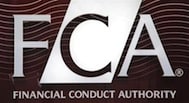The Financial Conduct Authority (FCA) has concluded in a recent report that high frequency trading (HFT) firms do not appear to anticipate order flow.
The report investigated the claim that HFTs ‘prey’ on other market participants by exploiting their speed advantage to predict order flows.
The FCA found no evidence to support the idea that HFTs “systematically anticipate near-simultaneous orders sent by non-HTFs to different trading venues.”
However, it did find patterns of this strategy over longer periods.
It said: “When moving from very short periods (milliseconds) to longer durations (seconds or tens of seconds), we find patterns consistent with HFTs anticipating the order flow.
“HFTs increase their activity before non-HFT-initiated large trades; they also increase their activity when non-HFT buying and selling pressure increases.”
The UK regulator confirmed more research would need to be done to confirm this theory to fully understand the long-term impact of HFT.
HFTs have come under fire since the publication of Michael Lewis’ Flash Boys, which claimed HFTs prey on other market participants.
In February this year, London-based Aquis Exchange decided to ban ‘predatory’ HFTs from its trading venue.
Speaking to The Trade at the time, Alasdair Haynes, chief executive officer of Aquis Exchange, said the move was an attempt to extinguish the type of trading “which is detrimental” to the market.
He explained: “This type of trading is high volume and builds market share, but it doesn’t show the damage that it is doing to liquidity.”
Since the decision, Aquis has doubled its market share, and found liquidity on its platform has increased.
